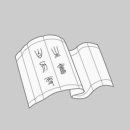
思辨系列之批判性思维指导
¥ 1 1.0折 ¥ 9.9 八品
库存5件
河北保定
认证卖家担保交易快速发货售后保障
作者[美]琳达·埃尔德(Linda Elder) 著
出版社外语教学与研究出版社
出版时间2016-06
版次1
装帧平装
货号5206
上书时间2024-10-07
- 最新上架
商品详情
- 品相描述:八品
图书标准信息
- 作者 [美]琳达·埃尔德(Linda Elder) 著
- 出版社 外语教学与研究出版社
- 出版时间 2016-06
- 版次 1
- ISBN 9787513575348
- 定价 9.90元
- 装帧 平装
- 开本 32开
- 纸张 胶版纸
- 页数 64页
- 正文语种 英语
- 原版书名 无
- 丛书 思想者指南系列丛书
- 【内容简介】
-
《什么是批判性思维》是“思想者指南系列丛书”当中的一本,属于该系列下的“基础篇”,主要供广大读者使用。《什么是批判性思维》介绍并阐述了批判性思维的概念、特点及方法,从而为读者进行后续的学习和阅读提供铺垫。
- 【作者简介】
- Linda Elder:教育心理学专家、思辨研究专家,在美国多所大学任教,主要教授课程为教育心理学、思辨能力培养;思辨研究协会会长、思辨中心执行主任。Richard Paul:思辨研究专家,国际思辨研究运动主要负责人,已发表200余篇与思辨研究相关的论文、出版25部论述思辨研究的著作。
- 【目录】
-
Introduction for Teachers and Students..........i
There are Three Main Kinds of Thinkers..........1
The Fairminded Critical Thinker..........2
The Selfish Critical Thinker..........3
The Na?ve Thinker..........4
Developing Intellectual Character..........5
How to Become a Fairminded Critical Thinker..........6
Intellectual Standards Help You Think Better..........9
Be Clear: Don’t Confuse People..........10
Be Accurate: Make Sure It’s True..........11
Be Relevant: Make Sure You Stay on Track..........12
Be Logical: Make Sure Everything Fits Together..........13
Be Fair: Make Sure You Consider Others..........14
Some Important Intellectual Standards..........15
A Checklist of Questions You Can Ask to Target
Intellectual Standards..........16
Think About Fairness..........17
Journal Entry Focusing on Unfair Thinking and Behavior..........18
We Take Our Thinking Apart to Find Problems in Our Thinking — and Solve Them..........19
Think About Purpose..........20
State the Question..........21
Gather the Information..........22
Check Your Inferences..........23
Question Your Assumptions..........24
Clarify Your Concepts..........25
Understand Your Point of View..........26
Think Through the Implications..........27
Clarifying Inferences and Assumptions 28
Finding Your Inferences and Assumptions..........30
Critical Thinkers Seek Better Ways of Doing Things..........32
Strategies for Using the Parts of Thinking..........33
Analyzing Problems..........33
Analyzing Characters in a Story..........35
Analyzing Chapters in a Textbook..........37
Analyzing Experiments..........39
Analyzing the Data Collected (After Experiments)..........40
Analyzing Subjects or Disciplines..........41
Asking Questions in Class Which Target the Parts of Thinking..........42
Strategies for Clarifying and Understanding Important Ideas:
Clarifying Your Own Ideas, Clarifying What O
点击展开
点击收起
相关推荐
— 没有更多了 —





















以下为对购买帮助不大的评价